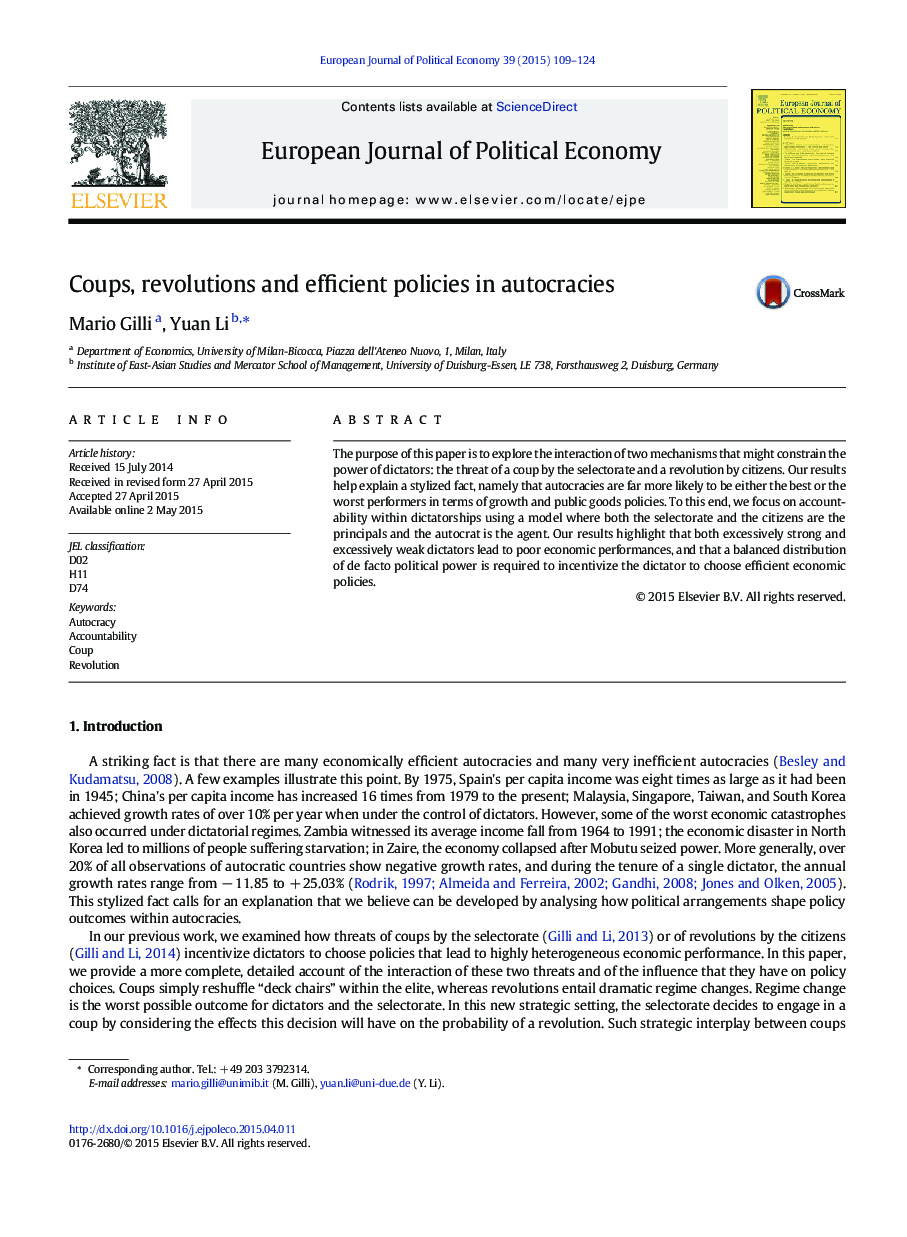| Article ID | Journal | Published Year | Pages | File Type |
|---|---|---|---|---|
| 5067929 | European Journal of Political Economy | 2015 | 16 Pages |
â¢This paper explores the equilibrium policies in autocratic states.â¢It explains the differences between successful and unsuccessful autocracies.â¢The selectorate and the citizens are the principals and the autocrat is the agent.â¢Different policy outcomes within autocracies are connected to institutional details.
The purpose of this paper is to explore the interaction of two mechanisms that might constrain the power of dictators: the threat of a coup by the selectorate and a revolution by citizens. Our results help explain a stylized fact, namely that autocracies are far more likely to be either the best or the worst performers in terms of growth and public goods policies. To this end, we focus on accountability within dictatorships using a model where both the selectorate and the citizens are the principals and the autocrat is the agent. Our results highlight that both excessively strong and excessively weak dictators lead to poor economic performances, and that a balanced distribution of de facto political power is required to incentivize the dictator to choose efficient economic policies.
